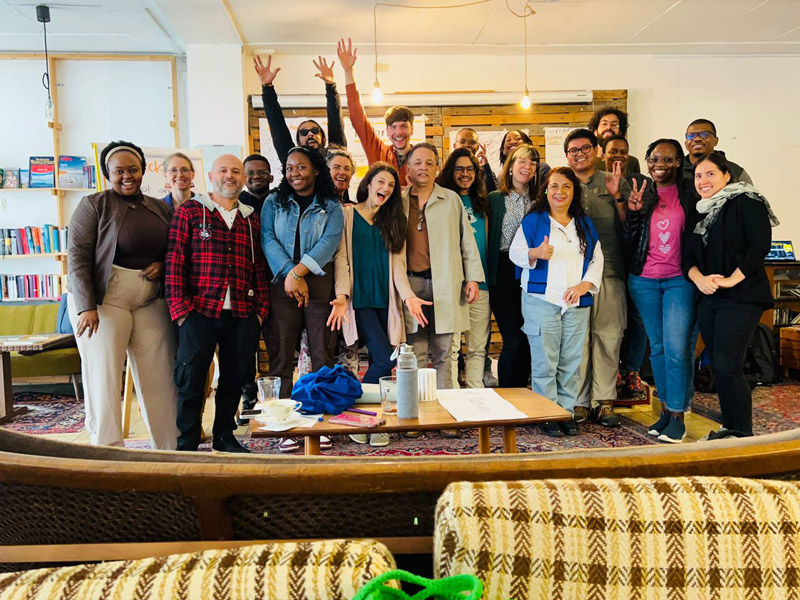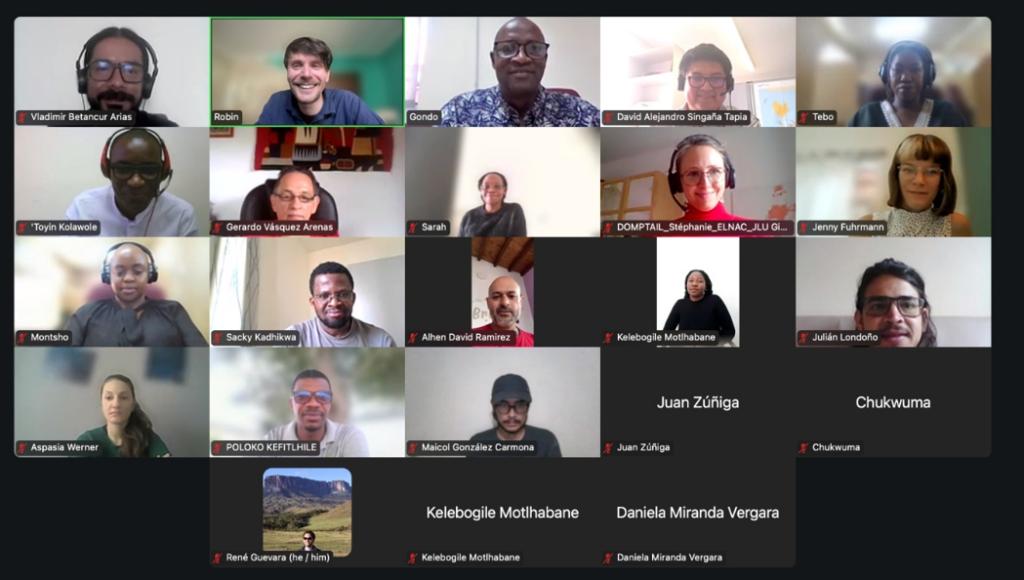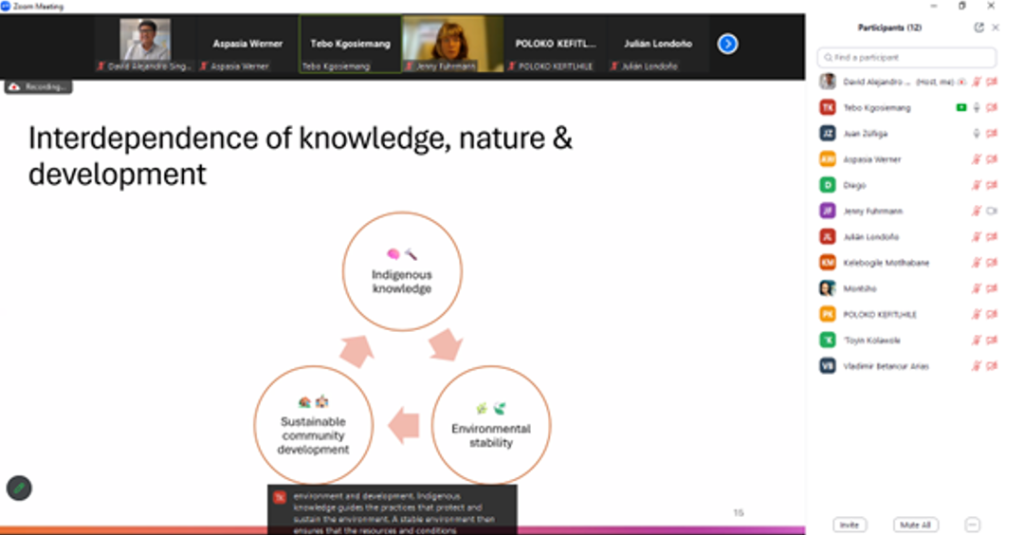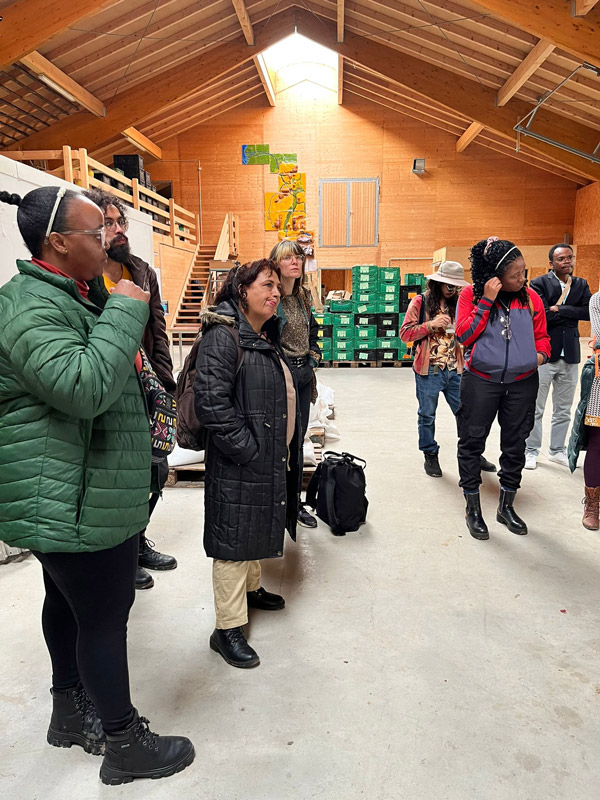Types of workshops and events

Physical workshops
The workshops are central activities of the Social Change Lab: they support the change process with the realization of the U-theory. There will be 4 physical workshops, one each year: Giessen (2024, 2027), Medellín (2025) and, Maun (2026). During the workshops, a common understanding of the problem and of the research practices SCLaKE aims to change as well as the outputs they will produce will be determined.
The main challenge of meeting physically is the commitment of participants to make time for getting to know one another in the new South-South relations SCLaKE establishes. The partners have already met through regular videoconferencing while preparing this proposal, which increased the relevance and motivation in the project for the partners. Each partner has agency in which it will also organize and host a physical workshop and will be responsible, with the support of the coordination position and the change lab facilitator for its content.
Mid-term workshops
Mid-term workshops are activities specifically designed to assist SCLaKE members in establishing robust professional relationships and cultivating a comprehensive understanding of the principles and implications of decolonization within the unique contexts of each member. These workshops represent a crucial opportunity for participants to engage in in-depth discussions regarding the progress made in their respective projects, with particular emphasis on the advancements achieved by the various working groups as well as the obstacles they encounter. Furthermore, these workshops function as a dedicated forum for articulating and aligning expectations related to upcoming meetings and future engagements within the organization.
The intention behind these mid-term workshops is not merely to facilitate dialogue but to foster a collaborative environment where ideas can be exchanged freely, and innovative solutions can be developed through collective effort. The reflective nature of these sessions allows for a thorough examination of the methodologies employed, thereby enabling participants to refine their approaches and strategies in alignment with their overarching objectives. Additionally, these workshops contribute to the personal growth and professional development of the members by exposing them to diverse perspectives and encouraging critical thinking and problem-solving skills. It is through this rigorous process of engagement and reflection that SCLaKE aims to achieve a sustainable and impactful implementation of decolonization practices.


Virtual seminars
The research seminar is the space in which both researchers and Thesis students interact in a classical formal manner on a regular basis to support one another’s research on our common topic of the socio-economics of management of natural resources.
From the Social Change Lab’s perspective, the main assumption is that the presentations serve as boundary objects to stimulate a reflection among members of the SCLaKE, on what it means to assess research from a decolonial epistemological perspective. What can we question and which new viewpoints and entry points can we collectively find to existing problems when adopting this critical perspective?







